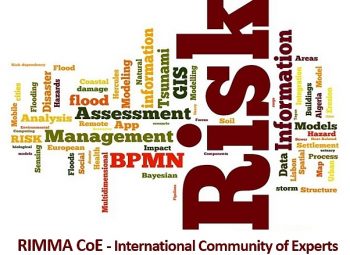WG-Risk Information Management Coordination Mechanisms (RIMCM)- Scope & Roadmap
Mission
The mission of this Working Group is to enhance global resilience by developing and promoting effective coordination mechanisms for Risk Information Management Systems (RIMS). By fostering integration and interoperability across systems, our goal is to ensure that risk information is accurate, timely, and actionable at every phase of disaster management. This enables faster, more cohesive responses and reduces harm during emergencies
Rationale and Context
Multidisciplinary initiatives in disaster risk management often face significant challenges due to the involvement of diverse institutions, governmental bodies, and agencies, each operating within distinct legislative frameworks, budgets, communication protocols, and administrative models. This institutional fragmentation complicates coordination efforts.
As noted by Thomas et al. (2015), coordination challenges are exacerbated when numerous stakeholders engage in interdependent tasks across multiple regions.
In complex, multi-actor environments, robust coordination mechanisms are critical for the effective sharing of risk-related data, such as information on hazards and vulnerabilities, among governments, NGOs, the private sector, and local communities.
These mechanisms help align risk management strategies across sectors and levels of governance, clearly delineating roles and responsibilities throughout all stages of the disaster management cycle. By facilitating joint planning, priority-setting, and decision-making, coordination mechanisms help eliminate redundancy, bridge operational gaps, and optimize resource allocation. Furthermore, they foster trust and accountability through transparent communication and standardized reporting practices.
full scope and roadmap .pdf :
WG-Risk Information Management Coordination Mechanisms (RIMCM)- Scope & Roadmap
